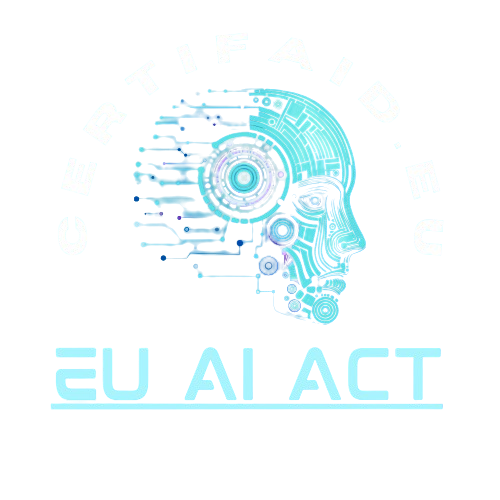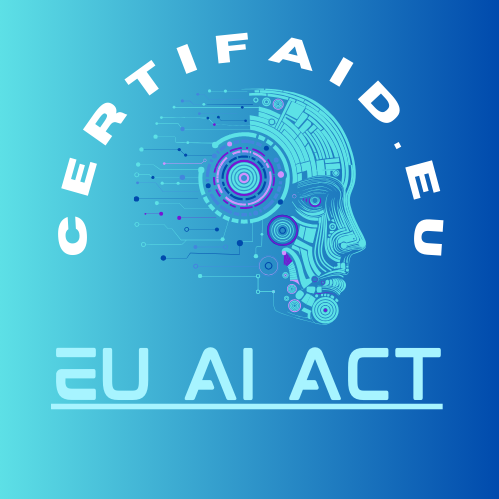
future proof HR Tech
HR Tech Certification
Certifaid.eu is an initiative of People Partner and ePrivacy. We are HR Experts, Data Protection Experts, Legal Experts and EU AI Act Experts.
Our goal is to help HR Tech navigate the EU-AI-Act and develop standards compliant with the EU AI Act.
Thanks to our deep understanding of DATA PROTECTION and HR, we help you adhere to all important certification standards, from the EU General Data Protection Regulation to the IAB Europe OBA Framework. Demonstrate your compliance and strengthen the trust of your customers, investors, and business partners with a recognized seal of approval!

EU AI Act
Consulting
According to the EU AI regulation (Chap III, Art.6), AI-powered HR tech software is particularly prone to falling into the high-risk category. This may be the case when the access to educational or vocational Training is determined by the application or when recruitment or selection processes are part of the output or an AI-based process.
We help you assess if your AI-application falls under the definition of a high-risk AI system and how to navigate the requirements of the EU AI Act.

EU AI Act
Management Process
A provider of a high risk AI System needs to
• Establish a risk management system
• Conduct data governance
• Draw up technical documentation
• Design their high risk AI system for record-keeping
• Provide instructions for use
• Design their high risk AI system to allow deployers to implement human oversight.
• Design their high risk AI system to achieve appropriate levels of accuracy, robustness, and cybersecurity.
• Establish a quality management system to ensure compliance.
We help you set up the documentation along the process.

Certifaid.eu
Seal
With a certifaid.eu seal, we aim to award HR Tech after a thourough technical, ethical and legal examination process.
Contact us to find out how we can support you in incorporating all the EU AI Act regulations.
The criteria catalogue for the Certifaid.eu seal is currently being developed. After a thourough validation and accreditation process with the according official offices, we will be able to deliver an official Seal to help you achieve secure and visible compliance with the EU AI Act.

EU AI Act
Workshops
To help you navigate the perks of the EU AI Act, we offer different formats of Workshops and Trainings. In our basic training courses, you will receive comprehensive information to prepare you to roll out your solutions in compliance with the EU AI Act. Together, we will develop legal, ethical and technical documentation, providing you with a solid foundation when rolling out your solution and meeting the compliance standards of your clients.

EU AI Act
Data Protection
Thanks to our expertise as Data Experts, we offer comprehensive consulting to help you make the most of various EU data regulation directives and regulations. These include the Data Governance Act (DGA), the Data Act (DA), the Digital Services Act (DSA), the Digital Markets Act (DMA), the AI Act (AIA), and the NIS-2 Directive.

EU AI Act
Ethics
As HR Experts with a strong expertise in HR related ethical considerations, we support you find practical solutions to make your AI based applications comply with the regulations of the EU AI Act.
We also support your clients with a variety of training formats for HR Experts, to help them navigate the requirements of a humanistic and ethical approach to AI-based technology.
Cutting Edge Certification Process
Most HR Tech systems using AI are defined as high-risk under the EU AI Act Chapter 3 Article 6(3), especially when they support selection processes e.g. in recruiting and career planning. They must meet strict requirements, with violations fined up to 7% of global revenue.
ePrivacy and People Partner jointly developed a cutting-edge certification program enabling HR tech providers to comply with major laws. The audit combines EU AI Act, GDPR, and Labor Law creating a trustworthy AI management for HR. The awarded seal prepares the entry of your business in the EU and demonstrates your commitment protecting personal data.
We will publish the criteria catalog here shortly and offer the new seal starting in Q1 2025.
EU AI Act
The AI Act is the world’s first comprehensive framework for regulating the use of artificial intelligence (AI). The aim of this legislation is to build trust in this technology by establishing clear guidelines and regulations. The AI Act seeks to create a legal framework for the development and use of AI within the European Union, with a focus on transparency, safety, and ethical standards. The following areas are particularly addressed:
- Classification of AI systems: AI systems are categorized based on their risk to society into four categories: unacceptable risk, high risk, limited risk, and minimal risk. These categories are subject to different regulatory measures.
- Regulation and oversight: High-risk AI systems are subject to strict regulations, including the requirement to conduct risk assessments and regular audits.
- Transparency obligations: Providers of AI systems must ensure that users are informed about their interaction with AI and understand how these systems make decisions.
- Accountability and liability: Clear rules are established regarding the liability and responsibility of AI system providers and users.
Artificial intelligence describes the ability of machines to autonomously perform tasks based on algorithms, mimicking the problem-solving and decision-making capabilities of the human mind.
The AI Act takes a risk-based approach and defines legal as well as technical requirements. These depend on whether an AI system is classified as low-risk, medium-risk, or high-risk. However, some particularly risky applications, referred to as AI systems with systemic risk, are completely prohibited. The evaluation of individuals based on their social behavior (social scoring) and the creation of facial recognition databases through indiscriminate harvesting of facial images from the internet are deemed unacceptable risks and are banned.
High-risk AI systems, such as those used in HR processes or in the medical field, can pose significant dangers to health, safety, or fundamental rights. Therefore, such systems must undergo thorough examination and evaluation before being brought to market. A conformity assessment procedure in accordance with the AI Act is a process through which providers of high-risk AI systems demonstrate that their systems meet the defined requirements before they are marketed or put into operation. Certification can be a potential component of this assessment procedure.
The type of conformity assessment procedure to be conducted depends on the specific category of the high-risk AI system:
Compliance with the AI Act will be mandatory for all organizations that develop, deploy, or use AI systems in the near future. The AI Act is an additional legal framework that exists alongside the GDPR. The GDPR is technology-neutral and applies particularly to AI systems; this will continue to be the case with the AI Act.


